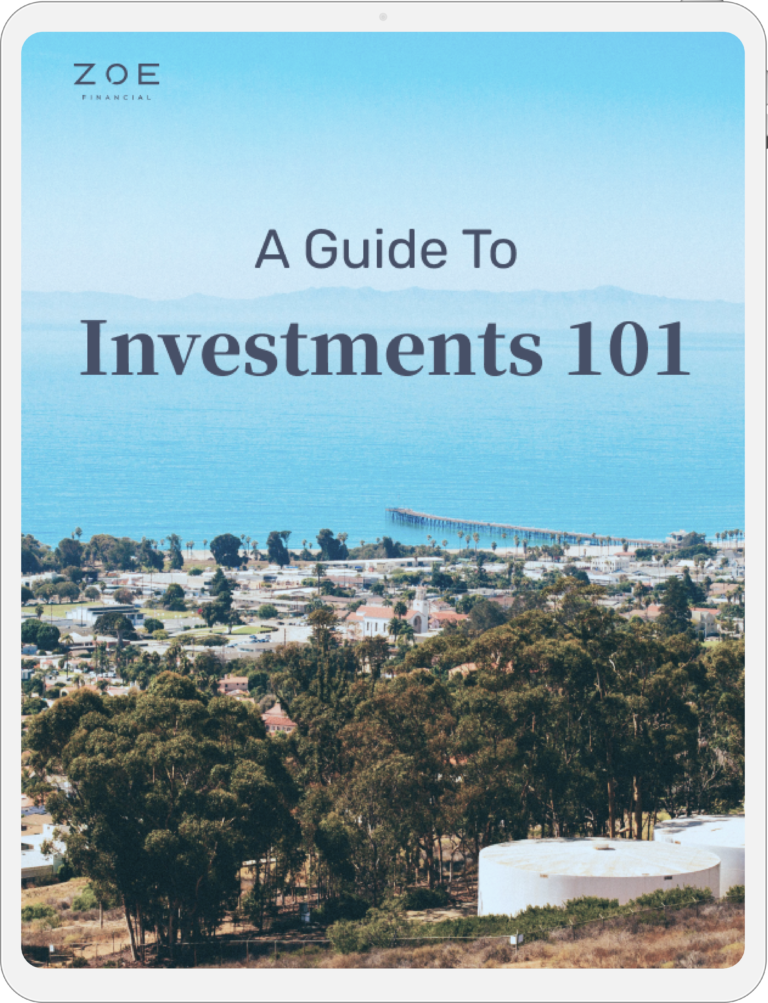Investing Planning
Investing can be an intimidating term. Although investing is a very broad term, it is probably the term most often associated with financial planning and financial advisors as, traditionally, financial advisors were mostly focused on managing their clients’ investments. Nowadays, however, investing in stocks, bonds and other investment vehicles, is much more accessible to non-financial professionals, and as a result, good financial advisors have broadened their product offering substantially.
The Basics of Investing
Investment management is now only one part of a financial plan – something that forms part of your financial life but is not the sole focus.
It’s important to understand the differences between investing and saving in order to grow your wealth, allowing you to redefine your relationship with money and live the life you want. By investing, you put your money to work.
Investing isn’t one-size-fits-all! Your financial goals, unique financial situation, time frame, risk tolerance, and comfort levels are all part of your investment strategy. Understanding the basics of investing can help you find the right approach to investing.
Our Ultimate Investment Guide Includes:
- Investing vs Saving
- The Stock Market vs Bond Market
- Types of Risks & Returns
Types Of Investments
When you purchase stock, you exchange cash for shares (equity) in a company. You can invest in small-capitalization companies or big guys like Apple and Microsoft, invest in an individual stock or take advantage of investing vehicles like mutual funds or ETFs. Stocks offer returns in the form of dividend payouts or price increases that you can sell for a profit. While there’s definitely risk, the returns are generally higher than what you might expect with bonds. Stocks are among the most popular financial assets when it comes to liquidity, tax benefits, and diversification.
Rather than taking a gamble on the latest and greatest recommendation of “stocks to buy now” that you might hear from a colleague, a more intelligent strategy is to first understand how you define financial security and how you connect money and wealth. You should also consider whether you are expecting any major lifestyle changes, such as starting a family or moving into a new job, or early retirement and how much time and ability you have to monitor and manage your stock investment portfolio. When you invest in stocks with a strategy and a plan, you will be better positioned to ride out the inevitable ups and downs that characterize the stock market.
Financial planners in Zoe’s network will help you to define these elements and strategies. With this information in hand, lastly, a financial advisor will then help you select optimum stock investment products that are cost and tax efficient.
Bonds are very common in a diversified financial plan. When you buy a bond, you play the role of lender, offering a company your money in exchange for regular interest payments. For example, if you invest $1,000 in a bond that matures over a 10-year period with 5% interest, you will receive $50 back each year. After 10 years, you’ll receive your original investment back. You can also sell at any time to earn capital gains. For instance, interest rates may fall after five years and your bond may be priced at $1,100, so you may sell to lock in the $100 gained. No bond is without risk, but their prices are considered more stable than daily fluctuating stocks. Most people invest in bonds through a well-diversified, low-cost mutual fund or ETF.
Mutual funds are investments where more than a single investor combines their money into a single pool in order to purchase securities. Mutual funds are managed by portfolio specialists who allocated and distribute the pool of money into various investment types including stocks, bonds, and other securities. They are a great investment choice when diversifying your portfolio and building out your long-term financial plan, as they tend to have a lower risk profile than singular stocks.
Mutual funds can also be actively managed, being updated by portfolio specialists who adjust allocations within the fund on a regular basis. Yearly management fees and up front charges are often associated with these actively managed accounts, which translates to lower returns for investors.
ETFs are similar to mutual funds but are traded via the stock exchange. ETFs are able to track and mimic a specific stock index like the S&P 500, Dow Jones, or NASDAQ. ETFs stock “baskets” can be comprised of stocks focusing on business sectors, commodities, emerging markets, and more.
ETFs are a great tool to have in a long-term financial planning strategy or if you are approaching retirement or in retirement and your risk tolerance has decreased.
Cryptocurrencies, like any new type of investment, are yet to be proven as a core ingredient to a well-diversified portfolio. For now, consider them a commodity (think gold, silver, etc.) which in the future could serve as a potential small sleeve in a portfolio that can help further diversify risk. Bitcoin is one of the most popular forms of digital money (cryptocurrency). Unlike standard money issued by a central bank, digital currency is created by open-source software (blockchain). Companies can release their own cryptocurrencies with an Initial Coin Offering to raise funds for business. You can then buy crypto-tokens with your cryptocurrency. Cryptocurrencies are hailed as a revolutionary way of transferring borderless money securely and without fees, but it is still very much in its early stages of development.
A CD is a low-risk investment like a high-yield savings account or short-term bond. This type of investment offers an appealing blend of safety and yield. Banks offer anywhere from one-month to 20-year CDs. By purchasing one, you agree to leave your money tied up in the account for the specified period. In return, the bank pays you interest, backed by FDIC insurance. If you were to invest $100,000 into a 3-month CD with a yield of 1.9%, you might earn $475. If you reinvested your principal three more times over the course of the year, it could return up to $1,900, assuming interest rates stay the same. The longer you invest in CDs, the higher the reward, but you may need to pay a penalty if you want to cash out early. Some investors create a CD ladder with staggered maturity dates to create the ideal balance of liquidity and yield.
Do You Need A Financial Advisor To Invest?
The modern wave of wealth management has enabled more accessible investing. Technology has made access to investment products economical for all, not just the ultra-wealthy. The bad news is that technology has also brought a 24-hour news cycle right into our pockets and magnified our behavioral biases.
The value of a great commission-free advisor is not their ability to “beat” the market but to help you stay on track with what you are trying to accomplish with your investments. A great advisor will want to understand what you value, what keeps you up at night, your goals and aspirations, and then work backward from there in deciding what investments are necessary for your specific situation.
Regardless of whether you work with an advisor or not, there are a handful of investment ingredients that will help you create a financial plan and accomplish your goals.
A Wealth Planner With Expertise in Investing
Connect with fiduciary financial advisors.
Trustworthy
Nationwide
Experienced




A Wealth Planner With Expertise in Investing
Connect with fiduciary financial advisors.
Trustworthy
Experienced
Nationwide




Investing Planning Resources
Disclosure: This page is not investment advice and should not be relied on for such advice or as a substitute for consultation with professional accounting, tax, legal or financial advisors. The observations of industry trends should not be read as recommendations for stocks or sectors.
Ready to Grow
Your Wealth?
Let us connect you with the most qualified wealth planners
Ready to Grow Your Wealth?
Let us connect you with the most qualified wealth planners





